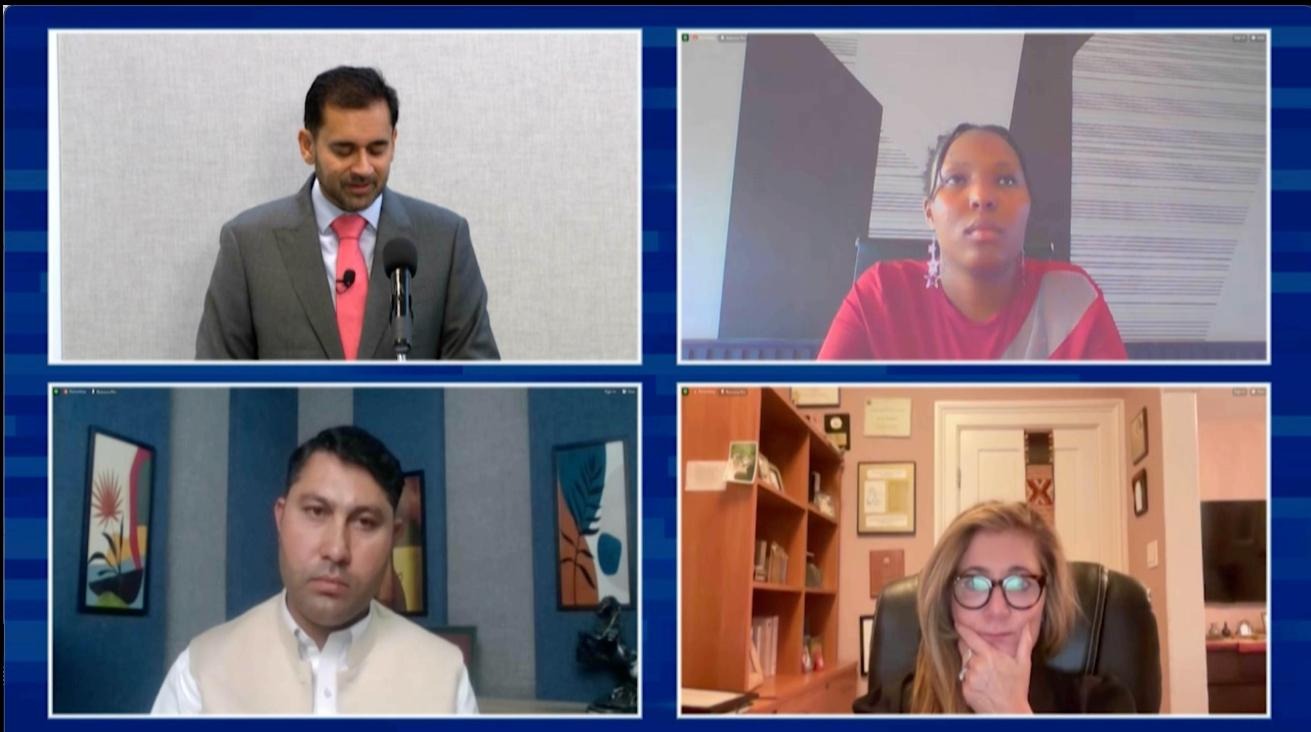This International Migrants Day, Equidem is honoured to elevate the voice of Cynthia Nyaboke.
18 December 2023
18 December 2023

Cynthia Nyaboke is 25 years old. She is from a farming community in Murang'a County in central Kenya, but was forced to move abroad to the United Arab Emirates for work because climate-change induced extreme flooding made life unsustainable. Her parents paid her recruitment fee, equivalent to $800. When she arrived in Dubai, she found herself in modern-slavery conditions, working as a domestic worker, 10 hours a day, six days a week, for about $300 a month.
On 13 November she shared a raw accounting of her experience to an audience in Washington D.C. as part of the launch of our report Unjust Transitions: Climate Migration, Heat Stress, and Labour Exploitation in the United Arab Emirates. Carried out by Equdiem’s migrant worker-researchers and based on interviews and discussions with nearly 250 migrant workers in the UAE, the report revealed that workers at the heart of the UAE’s renewable and gig sectors, and at the site that will host the UN Climate Change Conference (COP28) have left homes in Africa and Asia because of climate change only to be subjected to physical abuse, heat stress, exploitation and discrimination.
One of Equidem’s most vital mandates is to raise the voices of workers like Cynthia’s and empower her to share her reality with distant decision-makers, people who set policy but are far removed from the Global Majority. What makes Equidem unique is that it gives ordinary people like Cynthia who have shown extraordinary courage in the face of intolerable abuse a chance to speak truth to power. We put those directly impacted at the very centre of the debate ensuring genuine representation.
Our work goes much further than that, though. We’ve been busy speaking to the media, governments, business and others worldwide about the critical need to ensure the global effort to combat climate change works for the people most affected by it.
On International Migrants Day, we are honored to elevate her words.
A complete transcript is below, in addition to the video clip above.
***
Hello, my name is Cynthia Nyaboke.
I am 25 years old and until last year I was a migrant worker in the United Arab Emirates.
I come from Murang’a County whose main economic activity is agriculture and accounts for over 60 percent of employment in my locality. Our main farming system is cash crops farming, livestock keeping and fish rearing in both large scale and small scale.
I went to Dubai for work because due to declining yields in our small farm, my parents could not afford to provide for us adequately. This was because of soil degradation because of repeat farming and natural calamities like floods which caused soil erosion, thus making the land more unproductive.
My parents provided the recruitment fee, equivalent to $800 for my process of travelling to Dubai and they had so much high expectations from me to change our economic situation in the family. However when I reached Dubai I found a totally different environment: from working for very long hours, substandard food and working under very humid conditions.
The salary was a small 1200 Dirhams per month, around $300, with a shift of 10 hours per day for six days a week.
I used to have a recurring headache everytime and the worst of it all was that when you are given a sick off it was deducted from your wages which is against existing labour laws.
In summary, having a people centred approach ensures inclusion, representation and protection of the victims like us migrant workers.
I would like to urge delegates and key players at the COP28 summit to remember workers from Africa who have contributed least to emissions are suffering unjustly and unfairly yet we turn out to be the most vulnerable.
Thank you.